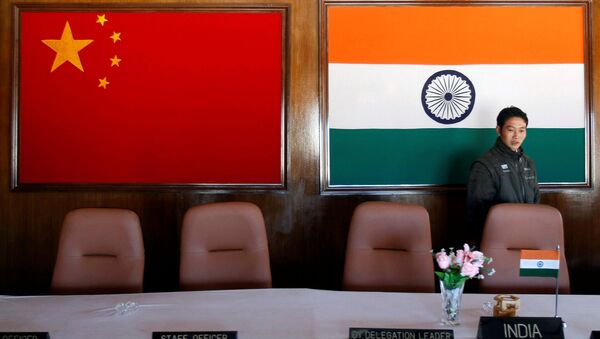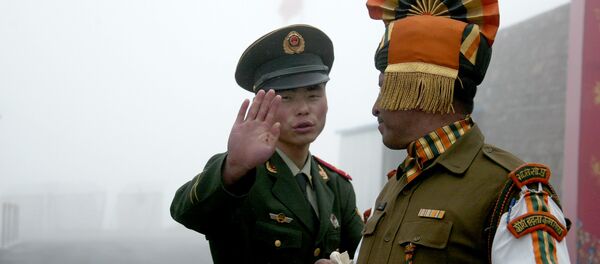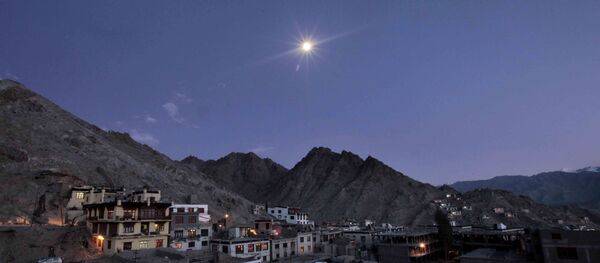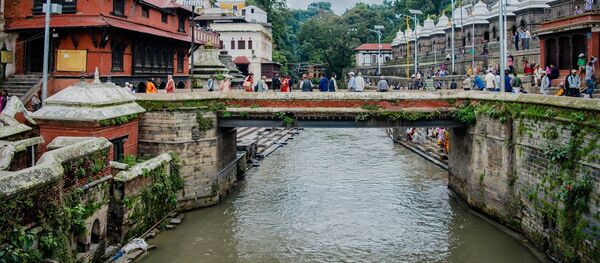According to them, China's sudden move into Doklam to build a road in disputed territory with Bhutan was a clear provocation, but one that was not done needlessly. The border dispute may be between China and Bhutan, but it isn't Bhutanese troops facing off with the People's Liberation Army — it's Indian troops instead. Bhutan's tiny military, which has no Air Force and relies on the Indian Army for training, could not hope to stand up against the might of Beijing. Thus, New Delhi came to their ally's defense.
There's only one problem with India's narrative: their troops are outside of Indian soil. India has no claim to Doklam, which means they have either occupied Bhutan or invaded China, depending on how the dispute shakes out. Neither reflects well on New Delhi.
This has led to the theory that China purposefully provoked India in Doklam to drive a wedge between them and Bhutan. The Land of the Thunder Dragon was never part of the British Raj, but it was once an Indian protectorate and maintains close ties to them. In recent years it has become more eager to increase its independence and be seen as a fully-fledged nation.
Now, the central issue facing Bhutan's foreign policy is whether or not they wish to remain in the Indian bloc or strike out on their own. "The next election in Bhutan in October 2018 will be fought on pro-versus anti-Indian slogans," wrote P. Stobdan, an Indian security analyst with The Wire, on July 11.
"The China-Bhutan boundary issue is one between China and Bhutan. It has nothing to do with India," said the Chinese Foreign Ministry on August 2, "India has no right to make territorial demands on Bhutan's behalf." India has not only "violated China's sovereignty" but also "challenged Bhutan's sovereignty and independence," the statement went on to say.
This speaks to a larger Chinese strategy of separating India from its regional allies. Faced between the choice of New Delhi and Beijing, smaller Asian countries have opted for the richer and stronger of the two. Nepal, which has been courted by both China and India in recent decades, has leaned towards Beijing. A Maoist party controls 82 of Nepal's 601 parliamentary seats and is part of the left-wing coalition government, and China has inked deals to build airports, solar panels, bridges, and railways in Nepal.
China has also bolstered their relationship with Sri Lanka, offering the island nation discounts on military equipment and billions of dollars in loans. Indian Prime Minister Narendra Modi said that "India is Sri Lanka's closest neighbor and friend" during the signing of a nuclear energy deal in 2015, but Colombo has given a Chinese state consortium a controlling interest in a deep-water port currently under construction in Hambantota- a port meant to turn the town into a major commercial center. In exchange, China transformed Sri Lanka's heavy debt into equity.
China's control of Sri Lanka's second-largest port would turn Sri Lanka into another notch in China's belt as they seek to encircle and isolate India from its allies.
In a possible sign that New Delhi is becoming aware that they've been lured into a trap, the Indian home minister Rajnath Singh said in a statement on Monday that "there will be a solution of Doklam issue very soon…I want to tell all the neighbors that India wants peace, not any confrontation."
Singh made his comments during an event organized by the Indo-Tibetan Border Police. "I'm confident that China, on its part, will make a positive move and a resolution will be found."
He went on to say that India might be able to "change friends, but [it] can't change neighbors" and therefore a good relationship with China was essential. "When [Indian Prime Minister] Narendra Modi called all the neighbors for his swearing-in ceremony, it was not just to shake hands. It was to have a healthy relation with all the neighbors."
A similar scene to the stand-off in Doklam played out in 1962, when a border dispute between the two most populous nations in the world devolved into a month of fighting. China was the decisive winner of the hostilities over an unprepared India, taking exclusive control over the disputed area.
The incident has informed Sino-Indian relations for the last half-century, and tensions have ratcheted up in recent years for numerous reasons (among them the election of a right-wing nationalist leader in Narendra Modi and increased cooperation between China and Pakistan.)
55 years ago, Beijing humiliated their southern neighbor over a border stand-off. Evidence would suggest that they intend to do the same today- but diplomatically, not militarily.









